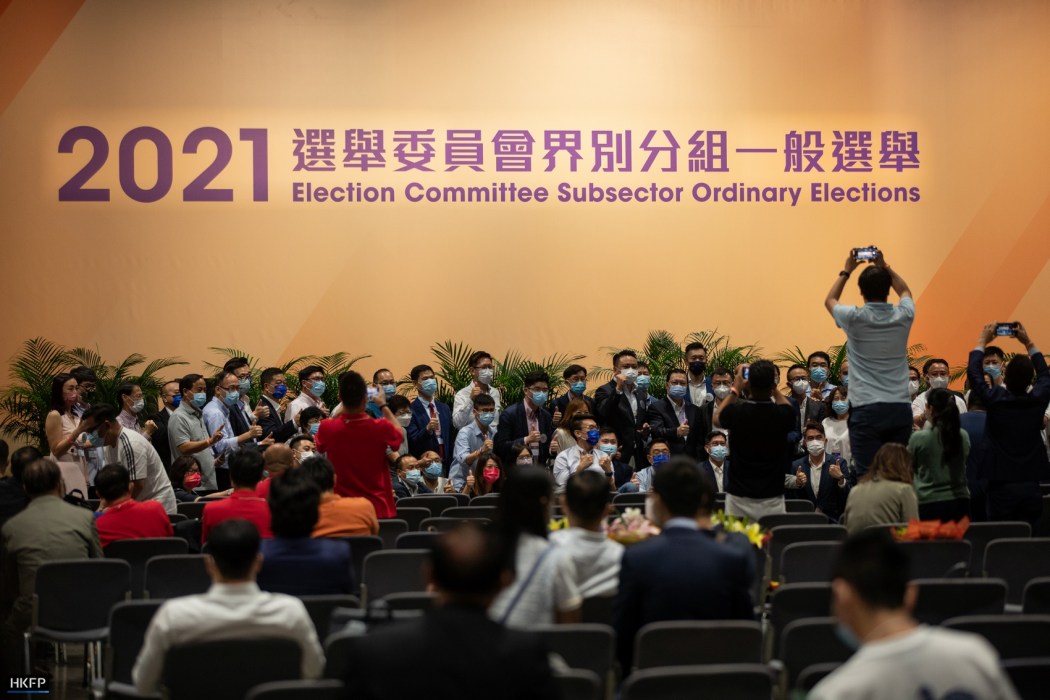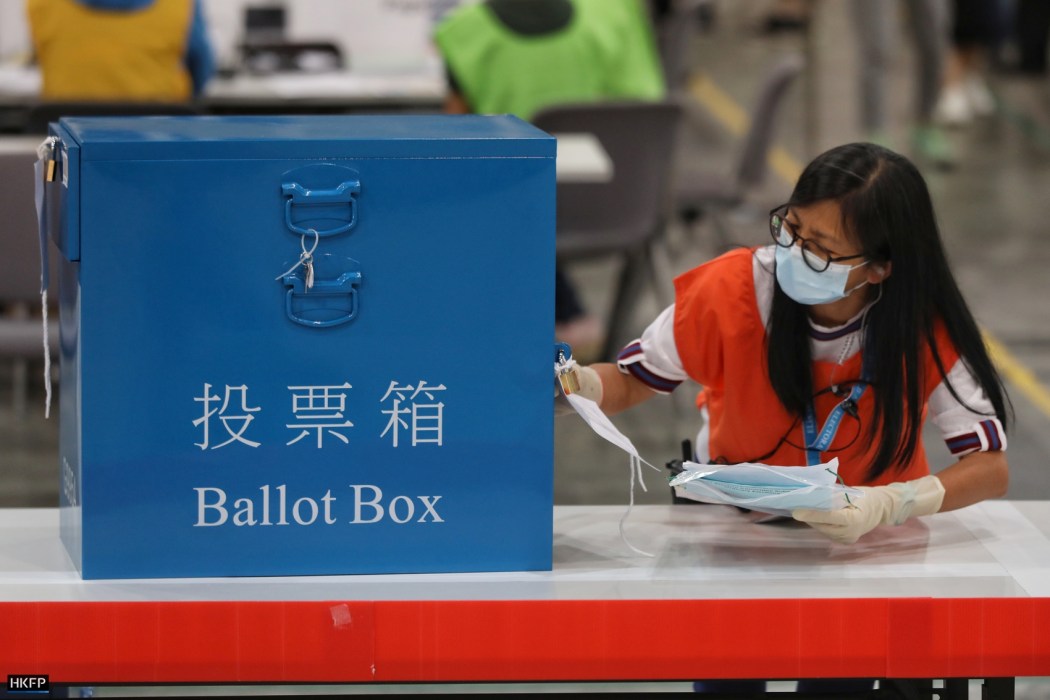Giving farce a bad name is rarely a good idea, and it gets a lot worse when the farce is designed to give legitimacy to a process designed to achieve representative government.
Sunday’s election to fill less just over a quarter of the seats for membership of the Election Committee, there were just 4,380 voters or just 0.06 per cent of the population, less even than the number of 5,000 police officers deployed to ensure that the proceedings were not disrupted.

As things turned out, the job of disruption appears to have been handed over to the election authorities themselves who made such a mess of handling this meagre crop of votes. Their bumbling ensured that counting went on into the early hours of the morning. That, incidentally, is the problem with farce, once it starts rolling along, the more absurd aspects of its progress are hard to stop.
However, the incompetence of the Electoral Affairs Commission is little other than a sideshow. The real problem for the government is how to achieve credibility for its shiny new election system that was described last week by legislator Regina Ip as having an admittedly smaller electorate, but one that is of higher quality and – a deep breath needs to be taken here – is “more representative.”

Ms Ip is, of course, hoping to be the main beneficiary of these arrangements in her seemingly endless quest to become Chief Executive. She is not stupid, so must know that these remarks are likely to be treated with derision by most Hongkongers. However, like all the newly hatched “patriots” busy strutting around the “improved” political system, Ms Ip has little interest in the views of the people and a great deal of interest in those of the political masters in Beijing.
Unsurprisingly, the bosses from the North have sent warm congratulations on the holding of this election. It is, after all, exactly the kind of election most loved by authoritarian governments as it provides a totally predictable outcome, derived from total control of the process.
And just to be sure that predictability is absolute, anyone who shows the slightest sign of rocking the boat is barred from taking part in the election. This works, as seen in this week’s Russian election, with a much wider electorate because even the least trusted of voters had no chance of voting for opposition candidates as they were screened out well before the ballot boxes were set up.

In the Chinese system on the mainland, the need for screening (although it is in place) is minimal because organised political opposition has long been stamped out. However, in Hong Kong, there was a complex web of opposition parties which have yet to be fully eliminated, so the need for screening is more pressing. It will however fade over time.
Another approach to securing “correct” election results is favoured in places such as North Korea where universal suffrage prevails but only exists for voters to endorse candidates put forward by the ruling party. Voting is compulsory so that the process of endorsement requires a physical act of compliance by all citizens.
Who knows, such a system may yet be put in place in Hong Kong but – for the meantime – the authorities remain fearful and distrustful of the people who, despite their best efforts, do not appear to be entirely cowed. Thus, an election system has been introduced that precludes the possibility of dissent, albeit at the high price of having so very few people taking part.
The only mystery that remains is whether the people who run Hong Kong are sufficiently deluded as to believe that anyone, outside their own circle of supporters, seriously believes that the kind of elections now in place bear even the smallest resemblance to the concept of representative government.

It may be argued that it really does not matter, because all forms of substantive governance in Hong Kong are now firmly under the control of the Communist Party in Beijing. The fact that the cyphers who carry out the Party’s orders have fancy titles such as Chief Executive, signifies very little. It follows that the process by which they are installed in office, is of equal insignificance.
Support HKFP | Policies & Ethics | Error/typo? | Contact Us | Newsletter | Transparency & Annual Report | Apps
| HKFP is an impartial platform & does not necessarily share the views of opinion writers or advertisers. HKFP presents a diversity of views & regularly invites figures across the political spectrum to write for us. Press freedom is guaranteed under the Basic Law, security law, Bill of Rights and Chinese constitution. Opinion pieces aim to point out errors or defects in the government, law or policies, or aim to suggest ideas or alterations via legal means without an intention of hatred, discontent or hostility against the authorities or other communities. |
Help safeguard press freedom & keep HKFP free for all readers by supporting our team

More HKFP OPINION:
HKFP has an impartial stance, transparent funding, and balanced coverage guided by an Ethics Code and Corrections Policy.
Support press freedom & help us surpass 1,000 monthly Patrons: 100% independent, governed by an ethics code & not-for-profit.










